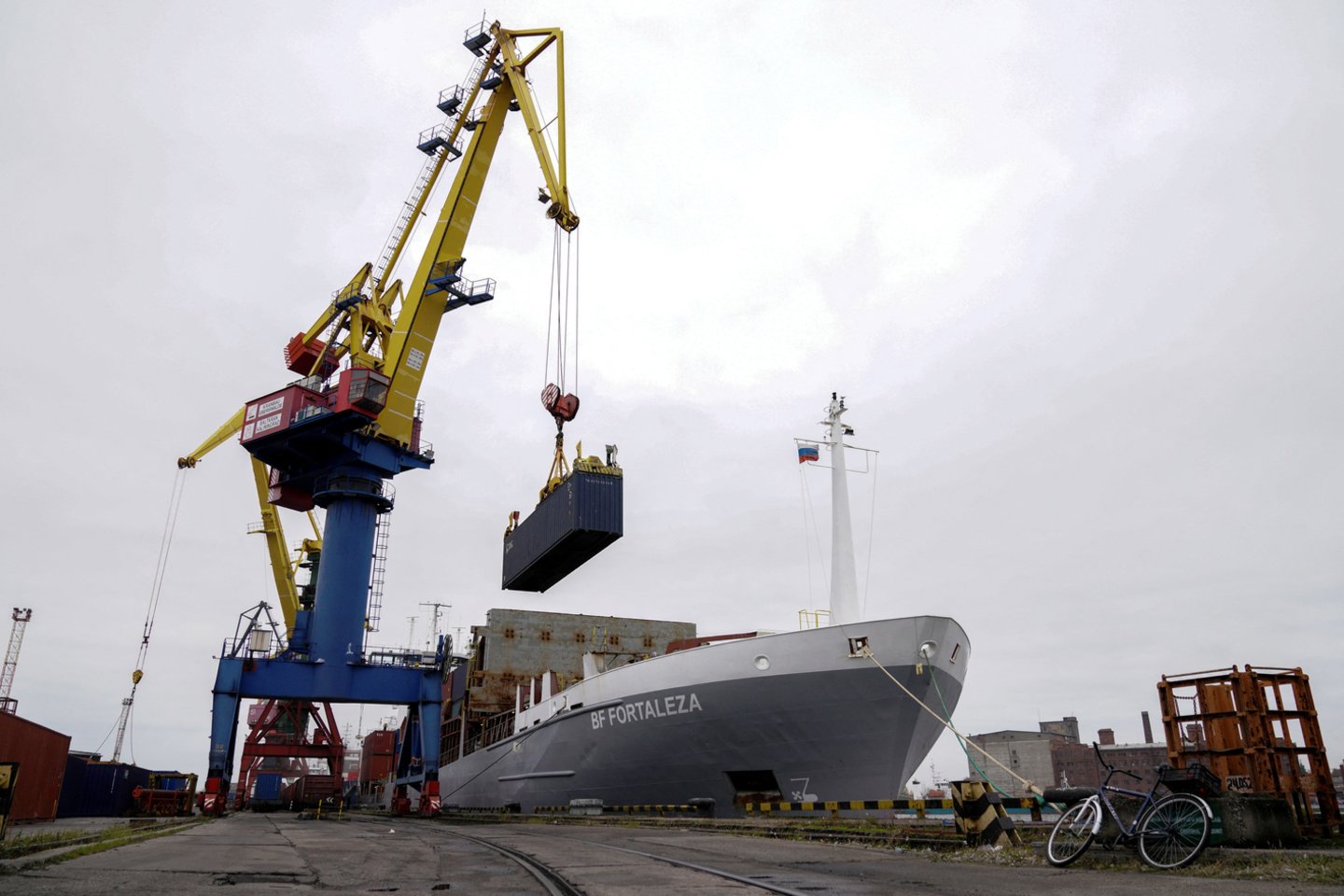In other words, it is possible that the European Union (EU) structures will not hesitate to change the way in which sanctions on Russian goods passing through Lithuania are implemented in the near future.
And not only for the transit of steel and ferrous metals but also for alcohol and cement: following the logic of the EU sanctions, these goods will no longer be able to be transported from Russia to Kaliningrad from the 10th of July.
Anecdotal information received by Elta from the corridors of the EU structures suggests that this is the way things are heading. Thus, the clarification awaited for almost a few weeks now, providing for different transit controls for sanctioned Russian goods than those currently applied by Lithuania, may not be forthcoming.
In that case, Lithuania is likely to continue to impose Kremlin-annoying sanctions on some goods going to Kaliningrad, at least until mid-autumn.
MEP Andrius Kubilius does not rule out such a scenario. As the former Prime Minister pointed out, similar scenarios were discussed last week, and, as Mr Kubilius stressed, nobody has denied them.
Moreover, the politician does not rule out the possibility that the concerns and passions about the so-called Kaliningrad transit will be taken over by the EC and addressed at the level of the European Council (ECJ) in the autumn.
„I refer to the information published by Bloomerg at the end of last week, which no one has refuted. If, before then, it was announced that the EC was preparing some new interpretation, that it was giving in to the Kremlin's pressure, then Bloomberg has announced that there will not be some new interpretation because the EC cannot give an interpretation contrary to the one that is enshrined in the regulation of the fourth sanctions package, which the ECJ has approved.
It says in black and white that, for example, the transport of steel products through EU territory is prohibited, full stop. There are no exceptions. It is being considered that if something needs to be changed, it should be in the regulation, not in the EC's interpretations, and this will be done perhaps with the seventh sanctions package, which is being discussed, but which is still quite far away,“ said Kubilius.
If the issues that have been the subject of discussion over the past few weeks were to be dealt with in the context of the planned seventh package of sanctions against Russia, it would be up to the leaders of the EU Member States to put an end to the nuances of the transit of the sanctioned goods to the Kaliningrad region, he added.
In such a case, Kubilius noted, Lithuania would already have the right of veto.
„If there is such a seventh package, then perhaps the regulatory provisions of the fourth package would be amended because it is the same document – with each sanctions package, it is supplemented. But to change the regulation requires a decision of the ECJ. And here Lithuania can veto or oppose such a decision“, Kubilius said.
As the politician noted, decisions on the seventh package of sanctions are likely to be taken only in the autumn.
„The next regular EGM will be only in October. Until then, I don't see who could adopt the seventh package“, Kubilius said, joking that Kaliningrad is facing a humanitarian crisis because of the soon-to-be effective restrictions on alcohol shipments.
„A deep humanitarian crisis could arise because Kaliningrad could barely survive without alcohol“, said Mr Kubilius.
Pleased that EU structures have listened to what Lithuania says
The fact that Lithuania has still not received the EC's clarifications on the new sanctions regime for goods in transit is a good sign, says another MEP. According to Petras Auštrevičius, it means that the EU structures have listened to Lithuania's explanations and position.
„Apparently, this is good news – they heard us. They have heard Lithuania's public debate on this issue and the criticism that has been expressed. Criticism not only of the EC's actions, which I think went beyond certain limits but also of the content. I think that the very normal and welcome reaction of our political community to all these matters has cooled the EC's ardour considerably.
Perhaps also the eagerness of some capitals to run over our feet and achieve their goal at our expense“, said Mr Auštrevičius.
„I am glad that Lithuania was not given a „gift“ on the 6th of July. But there were attempts to get the whole thing sorted out, formalised and handed over to bureaucrats very quickly. So we have not yet been received that unnecessary gift“, the MEP added.
Following the entry into force of EU sanctions on the 17th of June, Lithuania restricted the transit of steel and ferrous metals to Kaliningrad. According to the authorities, this ban by the Lithuanian authorities on the transport of sanctioned goods to Kaliningrad is based on the EU sanctions foreseen back in spring.
At the time, Russia considered the suspension of transit to Kaliningrad illegal and unprecedented and threatened a response affecting all Lithuanian citizens. For its part, the EC has set out to draw up new guidelines on sanctions. As has been said in the public domain, the EC may order the resumption of transit of Russian goods from Russia to Kaliningrad.
The fourth EU sanctions package foresees that from the 10th of July, cement, alcohol, and various luxury goods will be banned from the EU territory to the Russian territory, and from the 10th of August, coal and other solid fossil fuels from or exported to Russia.
ELTA recalls that last week Ingrida Šimonytė said that Lithuania will continue to implement the fourth package of EU sanctions against Russia and will stop the transit of other sanctioned goods from Russia to Kaliningrad as of the 10th of July when they come into force.

